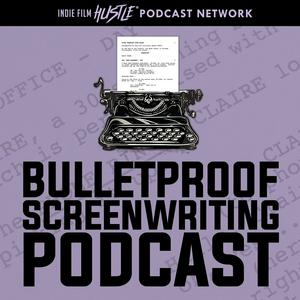BPS 412: How to Create a Compelling Documentary with Julie Cohen & Betsy West
Today on the show we have Oscar® nominated documentarians Betsy West & Julie Cohen.Betsy West (Director/Producer) is an Academy Award®-nominated Emmy winning director/producer of RBG (Magnolia, Participant, CNN Films, 2018), along with Julie Cohen. Most recently, she and Cohen directed My Name is Pauli Murray (Participant/Amazon Studios), which premiered at the Sundance Film Festival in 2021.Betsy was executive producer of the MAKERS PBS/AOL documentary and digital series about the modern women’s movement, and the feature documentary The Lavender Scare (PBS, 2019). As an ABC News producer and executive producer of the documentary series Turning Point, she won 21 Emmy awards. Betsy is the Fred W. Friendly Professor Emerita at Columbia Journalism School.Julie Cohen (Director/Producer) is the Academy Award® nominated, Emmy winning director and producer of RBG (Magnolia, Participant, CNN Films, 2018) along with Betsy West.Her film My Name is Pauli Murray, also directed with West, premiered at the 2021 Sundance Film Festival.Previous films she’s directed include The Sturgeon Queens (7th Art Releasing; Berlinale, 2015; Best of the Fest, San Francisco Jewish Film Festival), and Ndiphilela Ukucula: I Live to Sing (2014 New York Emmy Award for Best Arts Program).Before she started making documentaries, Julie was a longtime staff producer for NBC News. She's been an enthusiastic amateur cook and baker ever since her parents bought her a Cuisinart for her bat mitzvah in the 1970s.Their current film is called JULIA. The film tells the remarkable story of the groundbreaking cookbook author and television superstar who forever changed the way Americans think about food, about television, and even about women.Using a treasure trove of never-before-seen archival video, personal still photos, first-person narratives, and cutting-edge, mouth-watering food cinematography, the documentary will trace Julia Child’s surprising path, from her struggles to create and publish the revolutionary ‘instant’ classic Mastering the Art of French Cooking (1961, Knopf Doubleday Publishing Group), to her empowering personal story of a woman in her 50s, finding her calling as an unlikely television sensation.This is the first feature-length documentary solely devoted to Julia Child, and will illuminate her casual upheaval of the male-dominated culinary and television worlds.Almost single-handedly, Julia Child upended the mythology that women could not hold their own at the highest levels of creative gastronomy, and that the only women Americans wanted to see on TV were young, submissive, and conventionally beautiful.JULIA is produced with the full cooperation of Julia Child’s friends, family, and the Julia Child Foundation. It follows the highly-acclaimed documentary, RBG, executive produced by CNN Films, directed and produced by West and Cohen through their company Storyville Films, and edited by Carla Gutierrez, who will also edit JULIA.The film comes out Nov 12 in-theatres NY/LA followed by nationwide expansion.In this episode we not only discuss the making of Julia and RBG but also cover how they approach documentary, the craft of tell stories and much more.Enjoy my conversation with Betsy West & Julie Cohen.Become a supporter of this podcast: https://www.spreaker.com/podcast/bulletproof-screenwriting-podcast--2881148/support.

